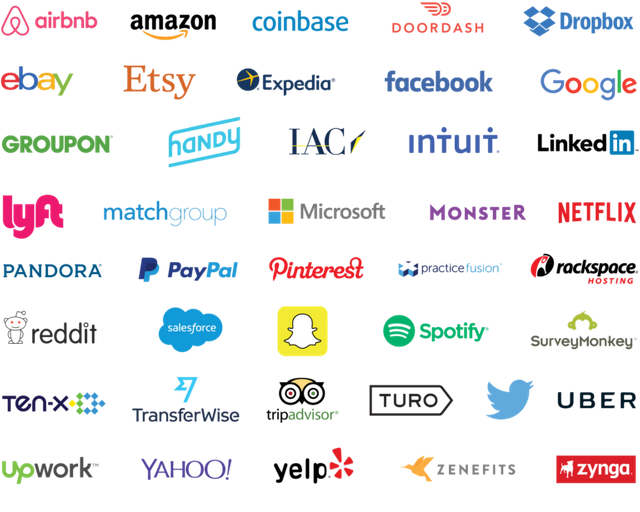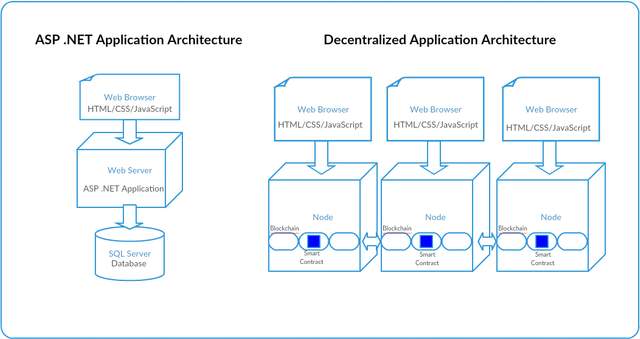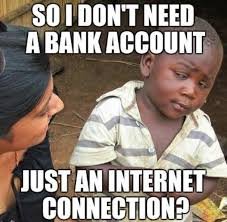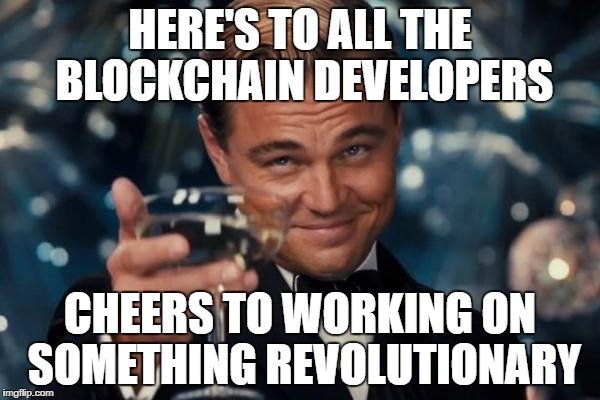Hi folks!
In this post, I intend to share some of my thoughts about this emerging decentralized world, its implications, benefits, challenges, and applications that intrigues my mind and makes me see a world of opportunities that can disrupt every single aspect of our daily lives.
As long as we've been tinkering with computers, there is a need and dream of digital cash, annonymous, instantaneous and free.
No need for a central authority
When the Internet was built everybody was seen as a trusted user, the problem is that thrusts can only be achieved with a central authority before the use of blockchain. The whole time we exchange things of value with each other, and because we always need a third party to verify everything for thrusts, the internet was eaten by these huge third parties.

The main idea that changes the game is that money is not the only way of value exchange, it's everything, your identity, your data, your comments and so on...
You're not Facebook customer, you are Facebook's product.
E.g. when you buy something at Amazon, it needs to check your bank information to make sure that you really have the money in order to pay, so your money info is centralized by your bank, after that, all your buying data, your preferences, and buying habits are centralized by Amazon, your seller also has all its selling history and reputation strictly related to Amazon, until your order arrives at your home many companies and people are involved in the process in a centralized way.
Besides all, shortly here are some other limitations in centralized applications:
- Less transparent
- Hackable
- Single Point Of Failure
- Prone to human manipulation
- It Can’t Handle Censorship
What centralized applications are from a decentralized perspective
One thing that blows my mind when I think about it, is that services working in a decentralized way can be seen just an open-access database to registers that are really owned by someone, as value.
Coming back to the Facebook example, imagine that Facebook is not the owner of your data anymore, just you, and all the intrinsic value of your data, being for AI purposes, ads and etc belongs to you, and all that information is secured in an open database. So in practice, you are the product and the facebook becomes just the path you take to access this data in an interactive way. As soon as a better service appears, all the data continues immutable and can be accessed by this new service, you can even have fun building your own version of Facebook.
If you got curious you can see all the Steemit blockchain transactions, blocks and accounts here.
Another huge practical implication is that as the use of these Dapps (Decentralized applications) grow, any app can access information from another Dapp, as a simple example, your social feed can access your public agenda.
In the image below a basic comparison between a decentralized application and a centralized one.

Some of the benefits of this decentralized applications include:
- It Is Fault Tolerant
- No Internet Censorship
- Trust On The System
New Job Opportunities
As soon as the first decentralized applications new ways of making money emerged, just like the dawn ages of internet and this is just beginning.
But with blockchain, the impacts can be even bigger than the Internet. For the first time we are able to transfer value in a digital way.
Let's first imagine the current architecture of a marketing agency in a centralized way, where there is the need for finding clients, contracting a design staff, where each person has a limited set of skills and is limited to contribute to a limited set of projects, and so on, but let's keep it simple. Now from the blockchain perspective, the same agency can work in a decentralized way, where the whole business logic is handled by smart contracts and anyone, doesn't matter who and where can submit its marketing strategy and make more money for himself and for the client, the designer will be able to find the projects he is interested in working with, be recognized by his project and not give the credits to the company he works in, also being able to choose the people he wants to work with.
From the client perspective, probably it will cost less since all the intermediaries were taken away, he will not need to trust that the company has the ability and authority to execute his needs and the benefits go on...
Now, if really put your brain on it, you can see that the scenario above can be used in almost any business.
Equal global rights
The situation is even worse in countries dominated by dictators where negative actions act directly in the price of the countries money, for the first time it's possible for citizens not to agree with these actions and choose to freely spend their money in a global and equal way.

Conclusion
As soon as I can I want to continue writing and contributing more to the democratization to the blockchain technology. I will also start developing some tutorials about how to create some Decentralized Applications and Smart contracts, stay tuned and don't forget to vote and comment!
P.S.
Comment below if you are interested in tutorials about developing decentralized applications and if so, you prefer the first tutorials to be on the EOS or the Ethereum blockchain?

Congratulations @klosowsk! You have completed the following achievement on the Steem blockchain and have been rewarded with new badge(s) :
Click on the badge to view your Board of Honor.
If you no longer want to receive notifications, reply to this comment with the word
STOPDownvoting a post can decrease pending rewards and make it less visible. Common reasons:
Submit